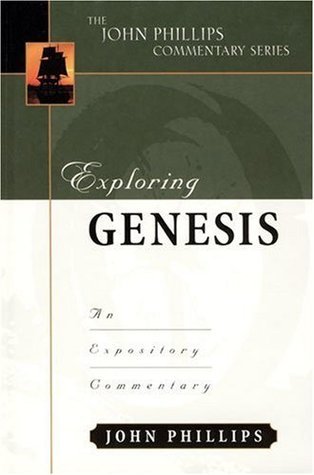When reading the book of Genesis, it's easy to get lost in all the confusing genealogies, unclear passages, and uncomfortable records of sin. But at its core, Genesis is a story. It is more than a history book, but it is not less. John Philips always reminds the reader of that story no matter how "weird" or "boring" the passage might seem. Comparing Scripture with Scripture (and using some sanctified imagination) he excels at bringing the text to life.
I disagree with him on some of these minor interpretive issues, but for the most part, this was a very interesting and enlightening book. Highly recommend it if you're studying Genesis, or if you simply want a solid understanding of the book.

